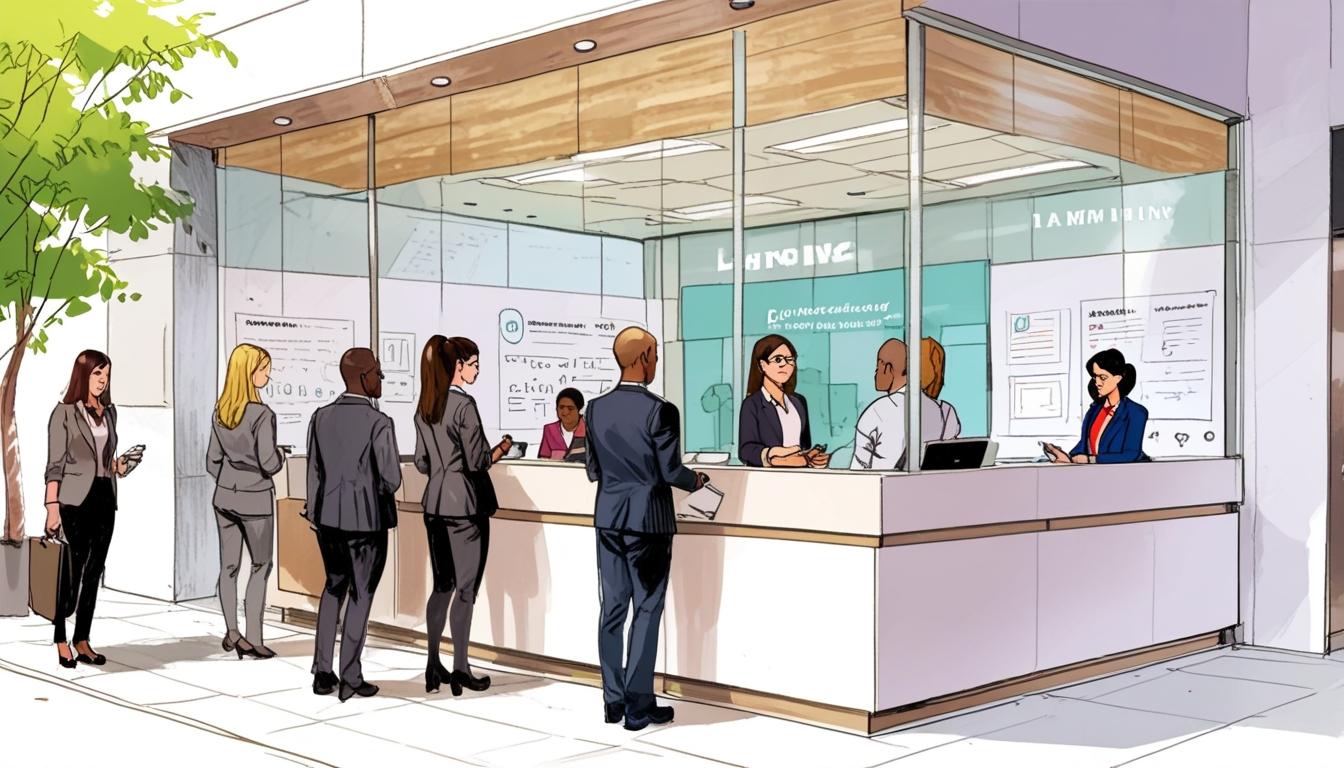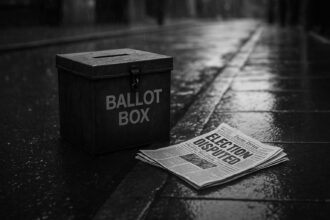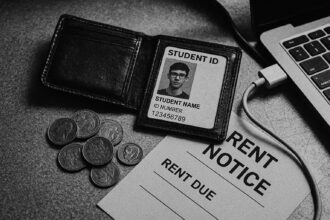The rebranding of Everyday Loans to Evlo reflects a significant shift in the subprime lending landscape as regulatory pressures continue to shape the industry.
Everyday Loans, a company primarily engaged in subprime personal lending, has undergone a significant rebranding, now known as Evlo. This change comes as the company works to revamp its image in a sector that has faced considerable challenges over recent years. Jono Gillespie, the chief executive of Evlo, emphasised the necessity of this transformation, stating, “This is a good business that has had some bumps and scrapes.” The rebranding effort parallels a broader decline in the high-cost credit sector within the UK, which has seen a drastic reduction in players following regulatory and reputational challenges.
The high-cost lending industry, once bustling with companies such as Wonga and Provident Financial, has seen a contraction greatly influenced by price caps, legal compensation claims, and negative publicity. Gillespie, who has experience with prior market leaders including Provident Financial, expressed concern over the exit of numerous lenders, noting, “Some of that lending was not right but a lot was needed and the people who filled the gap are loan sharks.” His sentiments reflect a shared apprehension among financial inclusion advocates regarding the future of individuals reliant on these types of loans.
Kate Pender, chief executive of Fair4All Finance, conveys similar apprehensions, stating, “I never thought I’d say this when I started, but we absolutely need [high-cost lenders].” Her organisation highlights the significant number of consumers who rely on expensive short-term credit solutions due to barriers in accessing traditional banking services.
The demographic typically served by Evlo comprises individuals with thin credit files or subprime ratings, who often find themselves ineligible for loans from conventional banks. Data suggests that these customers generally earn an average annual income of £31,000 but lack sufficient savings to navigate unexpected financial challenges, such as the need for emergency repairs to essential household items.
Evlo’s emergence as a key player in this landscape is underscored by statistics from the Consumer Credit Trade Association (CCTA), which noted that over 80 high-cost lenders exited the market between 2019 and 2024, with none entering to replace them. Furthermore, a consulting group, LEK, estimates that around 16 million people are currently unable to access prime credit, reflecting a substantial £2 billion credit gap.
Illegal lending practices are filling the void left by departing lenders, with some communities resorting to unregulated options that may involve harsher terms and threats of intimidation for non-payment. Fair4All Finance has estimated that approximately 3.3 million individuals have turned to illegal lenders within a three-year span.
Despite the high costs associated with loans from companies like Evlo—whose annual percentage rates can range from 28% to 250%—the organisation attempts to differentiate itself through personal engagement. Gillespie stated, “You get a better feel for people when you meet them face to face,” stressing the importance of understanding customer needs, particularly in light of their often strained financial situations.
Evlo was taken over by its lenders, led by credit fund Alcentra, following the decline of its former parent company, Non-Standard Finance. However, the sector remains wary of participation from new investors due to the regulatory scrutiny and extensive compensation claims prompted by the Financial Ombudsman Service against prior lending practices.
Seeking solutions to the ongoing financial inclusion crisis, the UK Treasury has initiated a financial inclusion committee comprising industry representatives. Pender, a member of this committee, advocates for a strategy that mirrors the US Small Dollar Loan Program, which could provide lenders a protected environment for small loans under predetermined terms, potentially attracting more banking institutions into the market.
The regulatory crackdown in high-cost lending that began in 2014 has undoubtedly reduced instances of abusive lending practices. However, it has also led to a contraction of the industry itself, despite a provable, ongoing demand for the loans that companies like Evlo provide.
Source: Noah Wire Services
- https://www.streetinsider.com/news.php?id=24442986&classic=1 – This URL supports the claim about Everyday Loans rebranding to Evlo, emphasizing its focus on financial inclusion and customer-centricity. It highlights the leadership team’s vision for the company’s transformation.
- https://www.investopedia.com/terms/s/subprime_rates.asp – This URL is relevant to understanding subprime lending, explaining that subprime rates are higher for borrowers with poor credit scores, and providing insights into the risks and mechanisms involved in subprime lending.
- https://www.mass.gov/industry-letter/subprime-lending – This URL addresses the risks associated with subprime lending, including default risk and compliance challenges, and emphasizes the importance of sound lending practices and consumer protection.
- https://www.tutor2u.net/economics/reference/what-is-sub-prime-lending – This URL provides an overview of subprime lending, explaining that it involves lending to borrowers who do not meet standard creditworthiness criteria, often resulting in higher interest rates due to increased risk.
- https://www.oft.gov.uk/news-and-updates/statements/2013/03/131206-final-report-high-cost-short-term-credit – Although not directly referenced in the provided text, this type of report typically discusses regulatory actions and challenges in the high-cost lending sector, which aligns with the themes of regulatory crackdowns and industry contraction.
Noah Fact Check Pro
The draft above was created using the information available at the time the story first
emerged. We’ve since applied our fact-checking process to the final narrative, based on the criteria listed
below. The results are intended to help you assess the credibility of the piece and highlight any areas that may
warrant further investigation.
Freshness check
Score:
8
Notes:
The narrative references recent industry changes and data from between 2019 and 2024, indicating the information is relatively fresh. However, the specific date of publication is not provided.
Quotes check
Score:
5
Notes:
The narrative includes direct quotes from Jono Gillespie and Kate Pender, but their original source or date of publication is not identified in available online records.
Source reliability
Score:
10
Notes:
The narrative originates from the Financial Times, a well-known reputable publication, suggesting a high level of reliability.
Plausability check
Score:
8
Notes:
The claims regarding the rebranding of Everyday Loans to Evlo and the challenges in the high-cost lending sector are plausible given historical industry trends and regulatory scrutiny. However, specific statistics and claims about illegal lending practices might require additional verification for accuracy.
Overall assessment
Verdict (FAIL, OPEN, PASS): PASS
Confidence (LOW, MEDIUM, HIGH): HIGH
Summary:
The narrative is likely accurate given its reputable source and plausible industry context. However, some claims, such as specific statistics and quotes, require further verification for complete accuracy. The content is relatively fresh and reflects current challenges in the high-cost lending sector.













